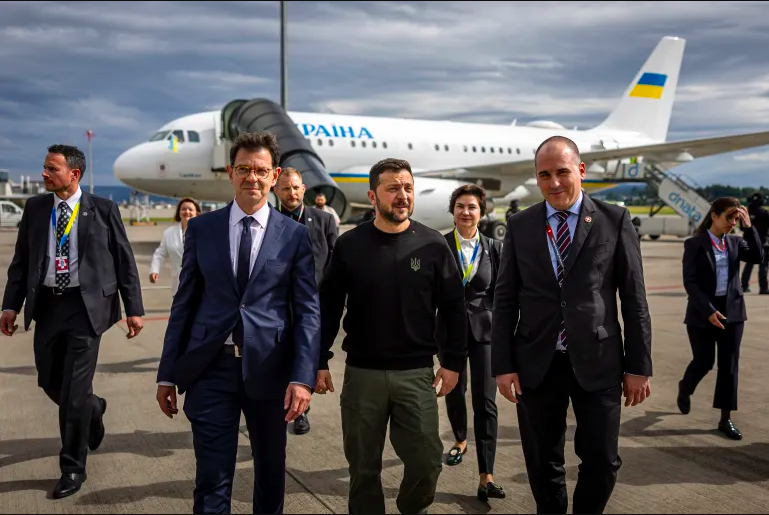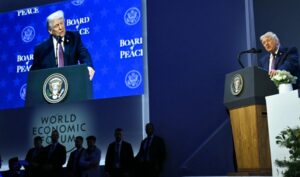
Published 06/18/2024 14:59 | Edited 06/18/2024 17:41
Last weekend, Switzerland hosted the Ukraine Peace Summit, bringing together around 100 delegations from countries and international organizations. The event, held at the Burgenstock resort in Stansstad, was intended to chart a path to an end to the war between Russia and Ukraine, but revealed significant divisions among participants.
At the end of the summit, a brief communiqué was issued outlining a “common vision” on crucial aspects for resolving the conflict, which failed to gain the support of most countries in the Global South.
The document highlighted the safety of nuclear facilities, including the Zaporizhzhia Nuclear Power Plant, in accordance with the principles of the International Atomic Energy Agency (IAEA). Furthermore, it emphasized the need to allow the free flow of Ukrainian agricultural products to ensure global food security, and demanded the exchange of prisoners and the return of illegally displaced Ukrainian civilians, especially children.
Western hopes of isolating Russia have faded, while recent military setbacks on the battlefield have put Ukrainian forces at a disadvantage. “The summit risks showing the limits of Ukrainian diplomacy,” said Richard Gowan, director of the United Nations International Crisis Group.
On Friday, Russian President Vladimir Putin said his country would end the war if Ukraine agreed to abandon its NATO ambitions and hand over all four provinces claimed by Moscow – demands that Kiev quickly rejected as equivalent. to surrender. Some viewed Putin’s statement as a reflection of growing confidence that Russian forces have the upper hand in the war.
Support and disagreements
Although 82 delegations signed the statement, including countries such as Australia, Canada, France, Germany, Italy, Japan, the United Kingdom and the United States, other important participants refused to sign. Countries such as India, Mexico, Saudi Arabia, South Africa, Thailand, Indonesia and the United Arab Emirates, represented by ministers and envoys, did not support the document.
O Brazil participated as an observer, but did not sign the statement either. President Luiz Inácio Lula da Silva justified the decision by stating that Brazil would only participate in peace discussions directly involving both sides of the conflict – Ukraine and Russia. Lula highlighted that it is impossible to resolve the problem by discussing just one of the parties and defended the need for effective negotiation, already proposed in partnership with China.
A Türkiye considered Russia’s absence an obstacle. “I should also note that this summit could have been more results-oriented if the other party to the conflict, Russia, was present in the room,” Turkish Foreign Minister Hakan Fidan said at the Summit.
India: Secretary (West) of the Indian Ministry of External Affairs, Pavan Kapoor, explained that Russia’s absence from the summit was the main reason for India not signing the communiqué. According to him, peace in Ukraine requires the unity of all interested parties.
Saudi Arabia: Foreign Minister Prince Faisal bin Farhan al Saud highlighted the importance of Russia’s participation in any serious negotiation process. He emphasized that a roadmap to peace will require difficult compromises and the inclusion of all parties involved in the conflict.
South Africa: South Africa’s lack of support was motivated by legitimacy concerns. Sydney Mufamadi, National Security Advisor, criticized Israel’s participation in the summit, five days after a UN commission accused Israel of war crimes against the Palestinians. Mufamadi questioned the credibility of a statement based on respect for international law, when Israel faces accusations of genocide in Gaza.
The Peace Summit in Ukraine, despite bringing together a wide range of delegations and issuing a joint statement, highlighted the complex divergences that still permeate the search for a solution to the conflict. The need for inclusive negotiations and difficult compromises remains central to advancing conflict resolution.
Source: vermelho.org.br

